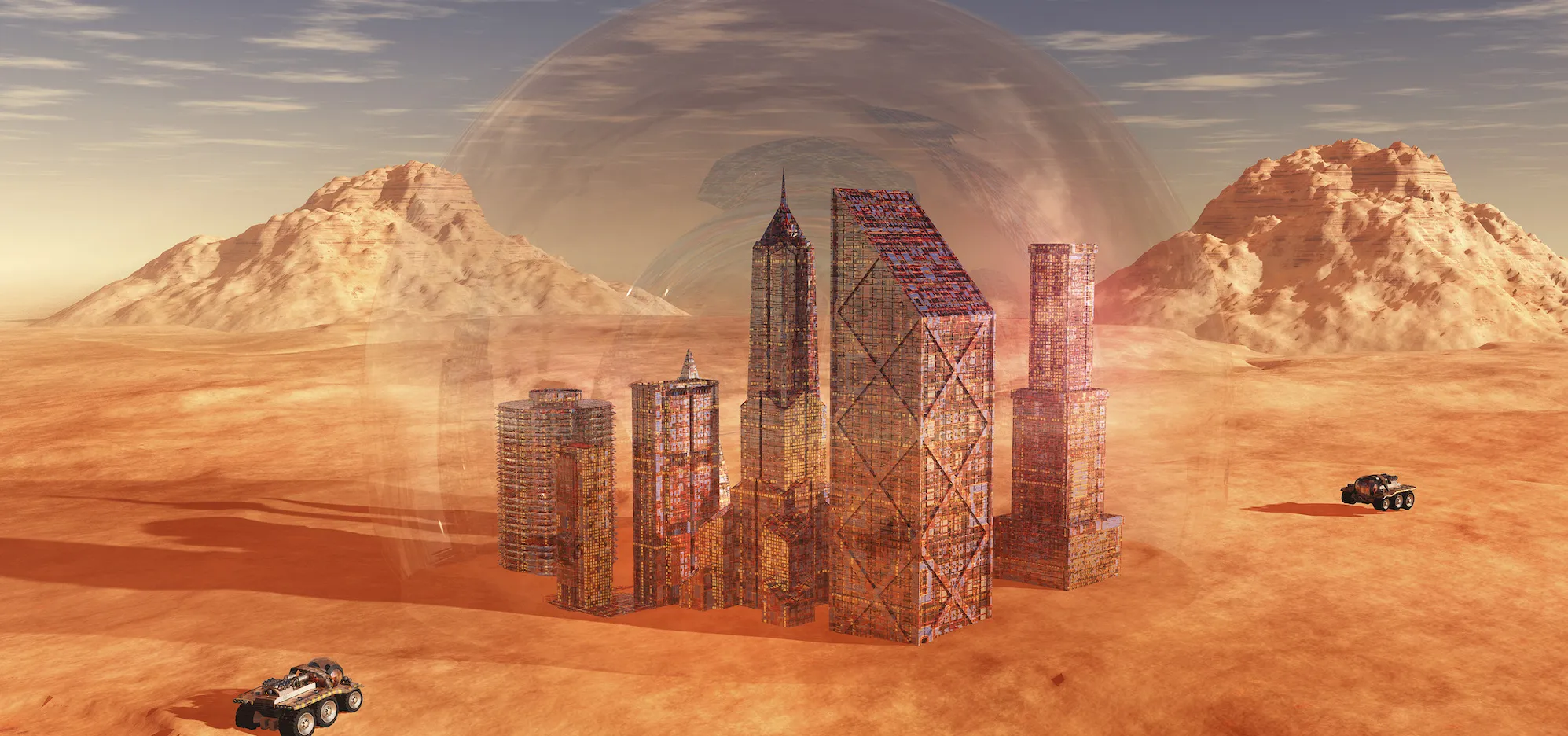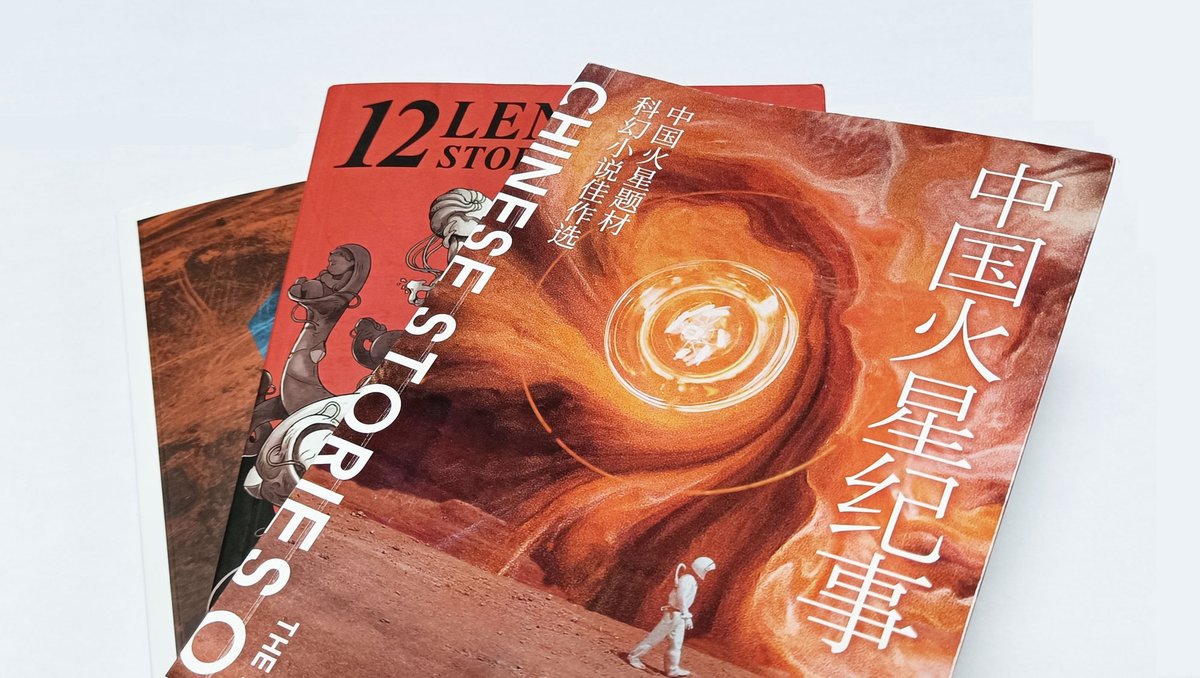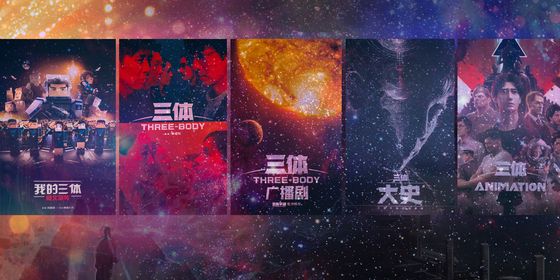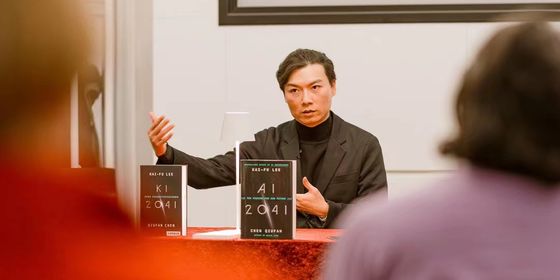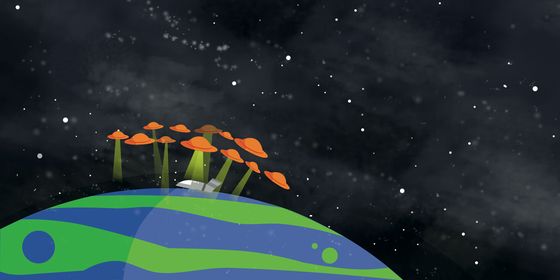As China's Mars mission sends images and data back to Earth, we look at Chinese sci-fi stories inspired by the Red Planet
Long before China’s National Space Administration landed its Tianwen-1 space mission on Mars in May this year, the Red Planet occupied a space in the Chinese literary imagination—even in ancient times.
While Western audiences may be familiar with classics like Stanley G. Weinbaum’s short story “A Martian Odyssey” and Ray Bradbury’s The Martian Chronicles, China’s much shorter history of science fiction writing has nevertheless produced a considerable amount of engrossing tales centered on the fourth planet from the Sun.
One of the earliest depictions of Mars in Chinese literature is found in Cat Country, written in 1933 by Lao She (老舍), one of China’s most significant literary figures of the 20th century. The novel follows Mr. Earth, an explorer who crash lands on Mars and finds the planet inhabited by a race of selfish, ignorant and xenophobic cat people. The book describes the cat people’s society as corrupt and chaotic, and is Lao She’s scathing social critique of China in the 1930s.
The first work of science fiction in the PRC didn't appear until 1954—and it was also inspired by Mars. This was the short story “From Earth to Mars” by Zheng Wenguang (郑文光), first published in Chinese Teenagers News magazine. Zheng was a Vietnamese Chinese astronomer who worked for the Chinese Academy of Sciences, and was widely regarded as the “father of Chinese science fiction.” The plot of his story is simple: Three young teens steal a spaceship to visit Mars, before adults catch up and convince them that it’s too dangerous to land on the planet. The teens orbit around Mars to get a closer look, before heading back to Earth.
Zheng’s detailed depiction of interplanetary travel—which included passages on movement in zero gravity, the appearance of the Sun and Earth in space, and the dangerous maneuvers of the young crew through an asteroid belt—proved a massive hit even among adult readers. The story galvanized the public’s interest in astronomy, and Mars in particular. In Beijing, tourists lined up at the gate of the Ming era (1368 – 1644) Ancient Observatory just to get a glimpse of the Red Planet through a modern telescope.
Encouraged by the enthusiasm, Zheng wrote another short story called “Builders of Mars,” this time with a more serious tone. Published in China Youth magazine in 1957, the story is set in the year 2000, with the colonization of Mars in full swing. On a brief vacation back on Earth, a Mars pioneer shares his tales of triumph and tragedy building the early Martian settlements with a retired astronomer who had inspired the younger man's Martian dream as a child.
Zheng’s Martian world is a wild land that requires taming and development. It suffers from extreme weather, deadly cosmic radiation, and plagues caused by microbial infections. The pioneer narrates how he lost his wife and unborn child on Mars, but never gave up his dreams of putting down roots in the red soil.
This memoir of the blood, sweat, and sacrifice of early Martian settlers evoked China’s socialist reforms and the beginning of its rapid industrialization in the 1950s, not least suggested by the depictions of the magnificent Martian harvest. One might find echoes with over-ambitious local governments report during the Great Leap Forward in the pioneer's descriptions of “a single strand of wheat weighing five kilograms,” “a pig as heavy as a tank,” and “a pigeon as big as an eagle.”
“Builders of Mars” won the Sci-fi Award at the World Festival of Youth and Students held in Moscow in the same year it was published. Before Liu Cixin came along, Zheng was the only Chinese writer to claim an international sci-fi award.
In more recent decades, generations of writers have brought diverse new perspectives to Chinese sci-fi literature. China’s space missions—like the Chang-e 4 probe to the dark side of the moon, the development of a Chinese space station, and the Tianwen-1 mission to Mars—have further captured the public’s imagination, giving Martian tales a wider audience.
To commemorate the launch of Tianwen-1 in 2020, New Star Press released a collection of 15 notable Mars-themed tales from 1995 to 2009, titled Chinese Stories on Mars. Many of the stories echo Zheng’s theme of human triumph, while others took the genre in new directions. In “Cook’s Rocks” by Yang Ping, two astronauts stationed on Mars make first contact with Martians. The aliens never appear in person, but deliver a message by placing rocks in various geometric positions, eventually leaving the astronauts with doubts about humankind’s place in the solar system.
In another story, “This is Mars” by Zha Shan, Shanghai and other coastal cities on Earth are inundated by rising sea levels caused by climate change. Meanwhile, Professor Lin, an astrophysicist, recalls a mysterious message left by his PLA officer father who went missing decades earlier while inspecting an underground defense project in China’s southwestern borders. Deciphering the message holds the key to saving the Earth.
More recent sci-fi writings feature a range of intriguing tales. Some even resonate with Lao She’s Martian parody. Bestselling historical fantasy writer Ma Boyong took up sci-fi writing with his humorous short story, “The Great Migration,” or “Da Chongyun,” published in 2016 in teen fiction magazine Xin Ganxian (“New Railway”).
The plot was inspired by China’s annual chunyun, or Spring Migration, when hundreds of millions travel to spend the Chinese New Year holiday with their families, resulting in packed trains and massive traffic jams. Ma satirizes the event by setting it in a Martian colony. Mars Opposition is a real astronomical event which occurs roughly every two years when Mars, Earth, and the Sun align. It is also when Mars and the Earth pass relatively close to each other. In Ma’s tale, the Opposition is when settlers on Mars compete for spaceship tickets back to the home planet. The protagonists attempt to cheat the ticket selling system or find a ticket scalper and, when that fails, they use guanxi to bribe a spaceship crew member to smuggle them on board.
Online literature is revolutionizing writing and reading among Chinese youth, and Martian tales are no exception. Die on Mars, a popular online sci-fi novel, was first serialized from 2018 to 2019 on Qidian.com, one of China’s biggest online fiction sites. Spanning 273 chapter and 600,000 words, the tale by author Tianrui Shuofu begins with a sudden explosion on Earth. Tang Yue, an astronaut stationed on the Kunlun Station on Mars, and Mai Dong, a scientist in the space station orbiting the Red Planet, become the last man and woman in the universe. Along with a sharp-tonged AI robot named Lao Mao (“Old Cat”), the last of humanity fight to survive in the vastness of space.
Despite the stereotype of low quality that plagues most online fiction, Die on Mars is meticulous on the details of space engineering. The author even attached a long bibliography citing research papers on topics like past Mars missions, spacecraft docking systems, and the design of spacesuits. A print version of the novel, and film and TV adaptions, have been announced.
With the expansion of China’s space program, Lenghu, a formerly abandoned oil town in the Qaidam Basin of Qinghai province, has become a tourist and education destination. A “Mars Camp” simulation base and surroundings resembling the barren Mars surface attract science lovers and adventurers to experience an environment close to that of the Red Planet. The town has also hosted the Lenghu Science Fiction Award since 2018, in which notable sci-fi authors are invited for a writing retreat, and each pen a short story inspired by the desolate surroundings.
Xia Jia, winner of the third Lenghu award in 2020 for her short story “Architects of Mars,” cites Zheng Wenguang’s “Builders of Mars” as her inspiration. But while Zheng described the hardship of building a physical base on Mars, Xia focuses on breaking psychological and emotional barriers in a technology-fueled future. In her story, scholars and artists are invited to attend an art festival in an alternative-universe Lenghu, this one an innovative ecological city. While attendees prepare for the closing play of the festival, a guest is found infected with a disease that will eventually cost her the ability to communicate with others. With heavy hearts, the participants discuss technology, linguistics, and ethics, while imagining a different life on Mars.
From Lao She to Xia Jia, social reality to space programs, Chinese tales inspired by the Red Planet will continue to expand toward new horizons—just as China’s space ambitions reach further into the cosmos.
Cover image from VCG





